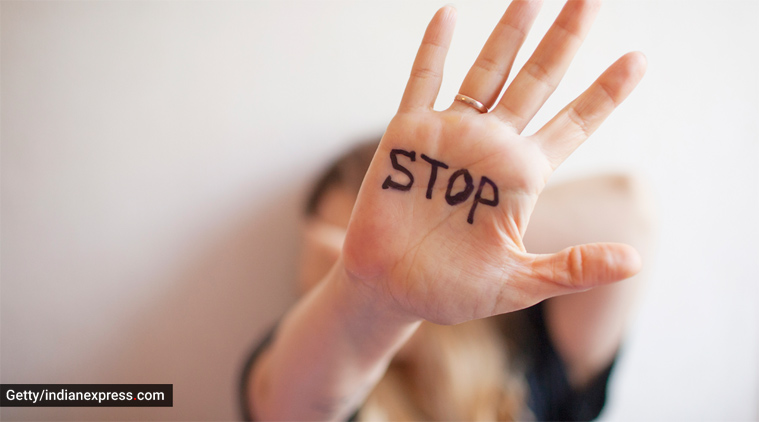 The number of complaints received by city-based women’s rights organisation Syawam shows a steeper rise in domestic violence across the state. (Source: Getty Images/Thinkstock)
The number of complaints received by city-based women’s rights organisation Syawam shows a steeper rise in domestic violence across the state. (Source: Getty Images/Thinkstock)
The West Bengal Commission for Women has reported an increase in domestic violence during the ongoing lockdown imposed to contain the Covid-19 pandemic. The panel has received 162 cases of crimes against women, including 38 complaints of domestic violence, in this period.
“We are afraid that domestic violence might have increased due to the fact that the victim and the abuser are sharing the same space and periphery. The victim also has no chance to escape in case she faces violent, abusive or toxic behaviour from the partner. We also speculate that during the lockdown there are situations where the victim could not use the phone to call the Commission with the presence of the abusive partner in close proximity,” the commission’s chairperson Leena Gangopadhyay told The Indian Express.
“The commission has been receiving applications and has been taking immediate actions on that basis, through applications received through helpline numbers, WhatsApp numbers and emails. Other than this, quite a few NGOs have been using and circulating our helpline number to assist the survivors reach out to the Commission,” she said.
The number of complaints received by city-based women’s rights organisation Syawam shows a steeper rise in domestic violence across the state. In April and May, Swayam received almost 1,100 complaints from women aged between 11 and 80 years.
“Normally we handle nearly 1,000 to 1,200 cases every year. Since March 20, we started receiving more domestic violence complaints over the phone. Earlier, we used to have three helpline numbers and one email id. With more and more complaints pouring in, we now have nine helpline numbers. In the last two months, we have received nearly 1,100 complaints, and they still are flowing in every day,” said Gargi Guha, coordinator of the organisation’s case work team. Syawam fights for women’s rights and provides holistic support to domestic violence survivors.
“During lockdown, incidents of physical violence against women have increased. In most of the cases, the lockdown period has aggravated the violence as the gender role in the house changed. Men are usually not taught to do household chores, but they were compelled to take them up in absence of domestic workers. They had to spend 24 hours with their family members under the same roof, as they could not step out to work. They channelled their frustration on women, be it their daughter, wife or mother in way of physical, emotional or sexual violence,” said Guha.
A 28-year-old homemaker said, “My husband could not go to his office during the lockdown and was required to do a few household chores. Following this, he vented out all his frustration on me. The longer he stayed at home, the more he started beating me up.”
She said this was the first time her husband had assaulted her in their three years of marriage. Her ordeal intensified with each passing day, she told The Indian Express. On May 16, the woman lodged a complaint with Swayam.
During the lockdown, Swayam has received four types of domestic violence cases — physical, emotional, sexual, and economical. It recorded several cases, including those of a father sexually abusing his 11-year-old daughter, parents bullying their college-going children, educated middle-class women being beaten up by their husband, and elderly women being physically assaulted by their son or son-in-law.
The organisation said the complaints came not only from women from economically weak families. Many complaints were educated and financially independent women from the upper strata of the society, including doctors, engineers and private sector employees.
“As our offices were closed due to lockdown, we provided mental health counselling, legal advice and police case follow-ups over the phone. We also offered information when they wanted to know about their rights and the best way to fight their cases,” said Guha.
On June 9, the organisation launched a “#StopDomesticViolence” campaign to raise awareness about the increase in domestic violence. It highlighted different forms of such violence, and its link to the lockdown, through posters in Bengali, Hindi and English.
Swayam’s director Anuradha Kapoor said, “The lockdown has resulted in a sharp increase in domestic violence in India and around the world as women are confined to their homes 24×7 with their abusers. It is time that each one of us speaks out and takes a stand to stop this.”